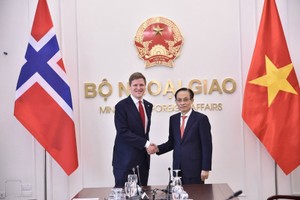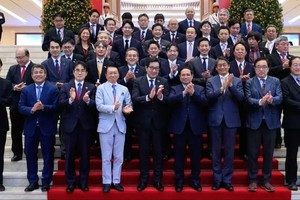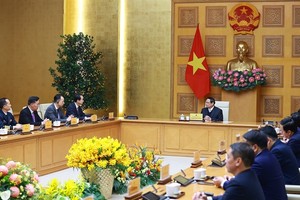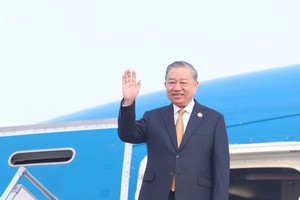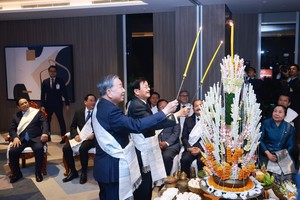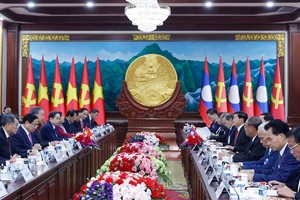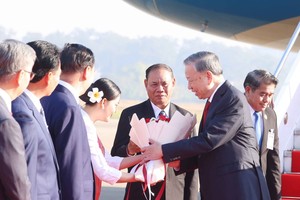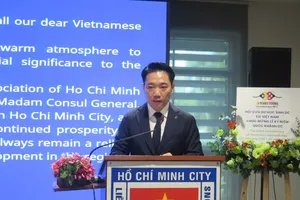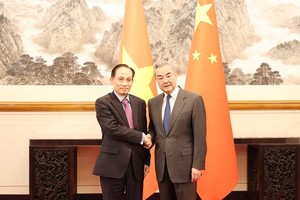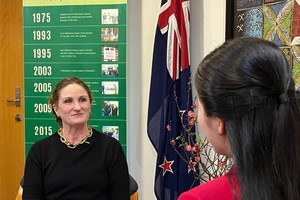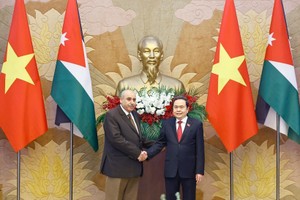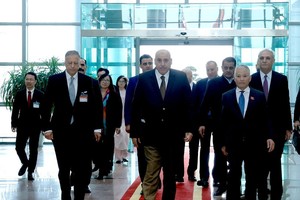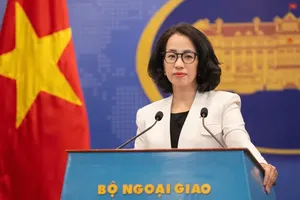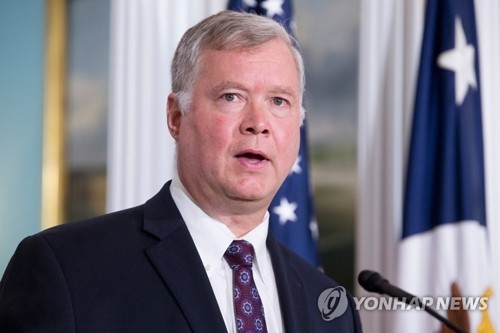
Biegun, a former Ford Motor Company executive, plans to visit Seoul early next week as part of his maiden Asia tour as the U.S. special representative for North Korea. It would also take him to China and Japan.
President Moon Jae-in has no plan to meet the envoy this time, and Lee Do-hoon, Seoul's top nuclear envoy, and other foreign ministry officials will instead greet him, according to the source.
Apparently, the best-case scenario for him is to have introductory talks with North Koreans in Pyongyang ahead of his Asia swing.
But Secretary of State Mike Pompeo called off a plan to travel there, along with Biegun, late last month.
If it had happened, it would have given Biegun more authority and confidence.
"There's no fixed job grade for the special representative position. But he's regarded as having the job level of an undersecretary of state," given his experience and networks with top administration officials, the source said.
Installing him into the post, the State Department said he's responsible for leading U.S. efforts to achieve Trump's goal of the final, fully verified denuclearization of North Korea.
"As Special Representative, on behalf of the Secretary of State he directs all U.S. policy on North Korea, leads negotiations, and spearheads U.S. diplomatic efforts with allies and partners," it said in a statement.
It seems certain that he will play a significant role, but the question is how much wiggle room will be given to him in the North Korea diplomacy led by Pompeo's and National Security Advisor John Bolton's influence.
"I think it's premature to call him the virtual control tower of the U.S. policy on North Korea," the source privy to Seoul-Washington ties said.
Pompeo is reorganizing his Korea team, with the post of assistant secretary for East Asian and Pacific affairs still vacant.
Alex Wong, a former foreign policy adviser to Sen. Tom Cotton (R-Ark.), has been promoted to serve as deputy to Biegun, having worked as deputy assistant secretary in the bureau of East Asian and Pacific affairs, according to the source.
Marc Knapper, a former acting U.S. ambassador to South Korea, was named acting deputy assistant secretary of state for Korea and Japan issues.
Mark Lambert, the department's Korea desk director, has assumed a newly created post: acting deputy assistant secretary for North Korea.
Once a new assistant secretary takes office, they will likely have the "acting" tag taken off.
At the White House, Matt Pottinger, the National Security Council's senior director for Asian Affairs plays a key role in handling Korea, supported by Allison Hooker, a Korea specialist.
Harry Harris, the ambassador to South Korea, who used to be the top commander of U.S. forces in the Asia-Pacific region, is another influential figure, as he's well aware of Washington's regional strategy.
"As a former soldier, Ambassador Harris speaks prudently," the source said. "His message is noteworthy now that it reflects the current U.S. policy on Korea quite accurately."
Harris is known to have relatively good chemistry with Pompeo, a former cavalry officer, and Pottinger, a former marine.
"Apparently, they have good teamwork," another source said.
Meanwhile, the U.S. is expected to replace Army Gen. Vincent K. Brooks, the leader of its 28,500 troops in Korea, with Robert B. Abrams, another four-star Army general.
The U.S. has formally notified South Korea of the decision, and relevant procedures, mostly administrative, are underway, the source added. Source from the Yonhap.
